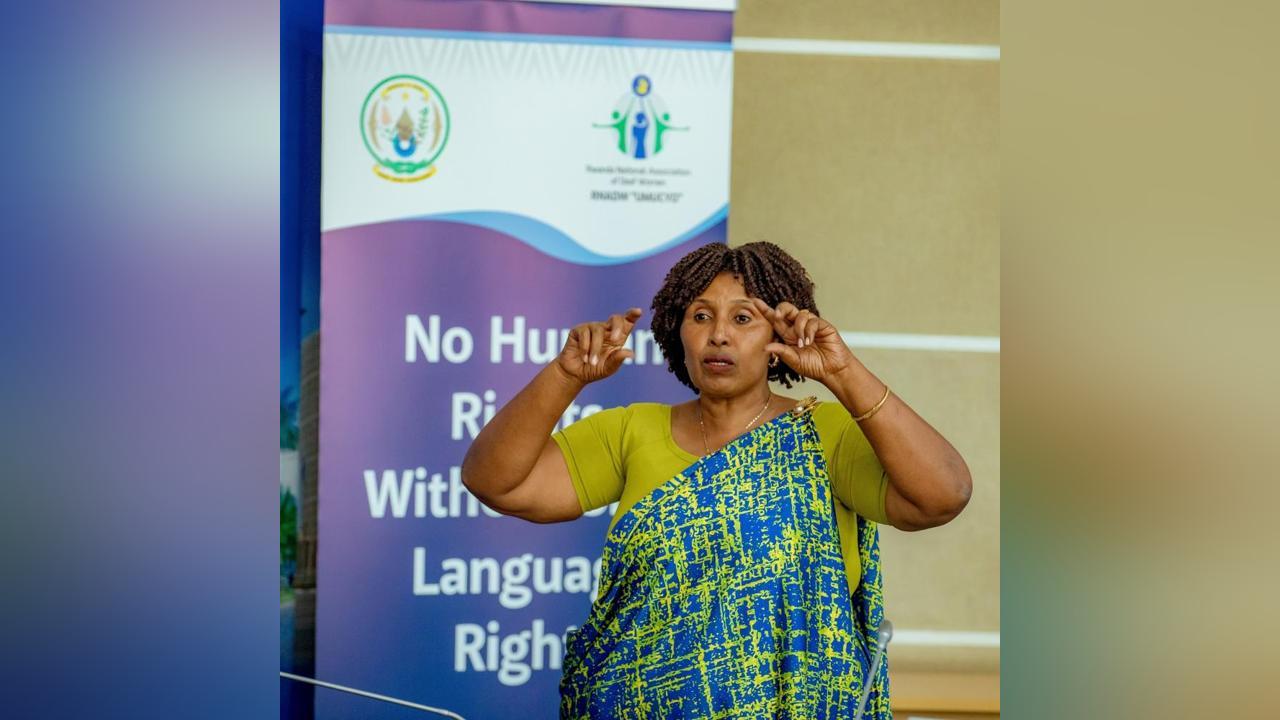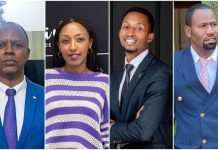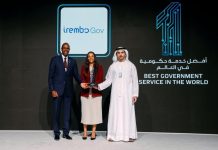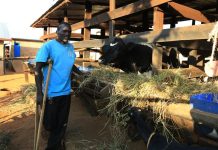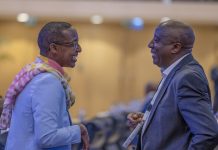Africa-Press – Rwanda. Annet Bahumura, a resident of Kacyiru Sector in Gasabo District and a person with a hearing disability, says she is thankful to the government, institutions, and people who have embraced inclusion as a shared responsibility, but insists more should be done.
Bahumura was among the advocates who joined the closing of the International Week of Deaf People on October 3, at Kigali City Hall. It was celebrated under the theme “No Human Rights without Sign Language Rights”.
Speaking to The New Times, Bahumura reflected on how life is different today compared to the past, when people with hearing disabilities were denied basic rights due to the absence of a recognised communication system.
“For me, education opened the door,” she said through her sign language interpreter.
“I studied in a school for the deaf, I am part of the Rwanda National Association of Deaf Women, and I have professional interpreter friends. At my workplace, there is someone who translates into sign language, and I have benefited from several trainings. These opportunities have shaped who I am.”
However, Bahumura noted that only a small proportion of people with hearing disabilities enjoy such access. She said that sign language remains central to their struggle for equality.
“Imagine a young woman seeking sexual and reproductive health services,” she explained. “She arrives with questions and concerns, but without an interpreter she cannot fully communicate with the doctor. It would make a huge difference if more doctors knew sign language, because sometimes we need privacy without involving a third person.”
She warned that this communication gap carries serious consequences.
“When a teenage girl with a disability lacks information on reproductive health, it can lead to unintended pregnancies or even wrong prescriptions simply because there was no understanding between doctor and patient.”
While acknowledging progress, Bahumura stressed that the shortage of interpreters and limited training for service providers continue to exclude many. She called for sign language services in critical sectors such as hospitals, schools, workplaces, and media.
“Having interpreters on television, for example, ensures we also receive vital public information. These are not privileges; they are rights,” she said.
The event was presided over by the leadership of the Rwanda National Association of Deaf Women (RNADW), the Ambassador of Sweden, Dag Sjoogren, district officials, representatives from the UN Human Rights Office (OHCHR), and the National Commission for Human Rights, among others.
It featured the awarding of Rwandan Sign Language (RSL) trainees, the dissemination of a policy brief on challenges in Sexual and Reproductive Health Rights (SRHR), as well as the celebration of Deaf culture and intersectional advocacy for diverse deaf women and girls, including youth, first-time mothers, single mothers, and refugees.
Pelagie Muhorakeye, the President of RNADW, acknowledged the positive strides made toward empowering persons with hearing disabilities through improved awareness, economic empowerment, and educational inclusion. However, she stressed the need for greater efforts, particularly in strengthening the use of sign language.
“Elevating sign language to the status of a national language would unlock our full potential as a society. Genuine development can only be achieved when sign language is formally recognised and utilised as an official language in Rwanda,” she said.
“It is our sole medium of communication, enabling us to engage with others and to access critical services, ranging from judicial investigations to confidential healthcare on equal terms. Like Kinyarwanda and English, sign language is a complete and legitimate language, and it warrants equal recognition.”
Ambassador Sjoogren commended the efforts by Rwanda towards advancing inclusion, highlighting Sweden’s commitment to supporting the country’s inclusive journey.
The diplomat pointed out the importance of leaving no one behind and underscored the role of health and education in fostering equal opportunities:
“My main message as Sweden’s representative in Rwanda is that, as Rwanda clearly chooses inclusion in so many ways, we look forward to being your partner in this endeavour,” he said.
“It is very clear that you cannot leave parts of your population behind. This gathering is a beautiful testimony to that commitment. I believe the broader health sector is crucial, healthcare and education must adopt an inclusive approach from the start, ensuring equal opportunities for everyone to thrive.”
Alexis Ingangare, Executive Administrator of Nyarugenge District, emphasized that the district is actively implementing plans to promote sign language, with tangible results expected soon.
“To understand each other, we must strengthen sign language. This will enable both the Deaf community to achieve their goals and us to achieve ours, including in public offices, transport, and healthcare services. We are training more professionals, and the impact will be visible soon.” he noted.
For More News And Analysis About Rwanda Follow Africa-Press

